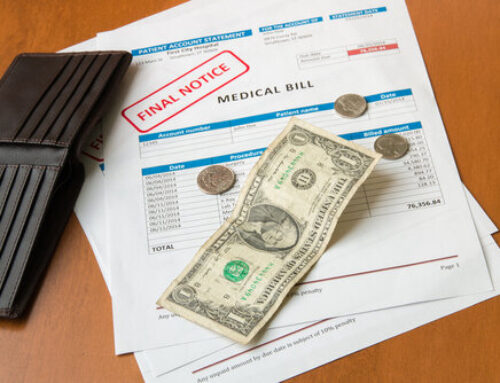If you are in serious debt, then you may be living from paycheck to paycheck with little room to spare for any unforeseen expenses or hiccups in your monthly, weekly, or even daily cash flow. However, just when things do not seem like they could get any worse, one day you are on your way home from picking up the kids at school and you stop at a gas station to fill up your tank. Your debit card is refused when you swipe it at the pump. Confused, you swipe it again, but again it is declined. Baffled as to what is going on, you sign into your bank’s app on your phone. Your account shows a negative balance. Even worse, it appears one of your creditors dipped directly into your bank account without you even knowing it or your bank even giving you a head’s up before allowing this creditor access to your money. This leaves you stunned. Is this even legal? Shouldn’t you have received some sort of notice before the bank just allowed access to your account, to your hard-earned money?
Creditors Can Reach Directly into Your Bank Account
Under certain circumstances, creditors can reach directly into your bank account to take money that you owe them for unpaid debts or loans that you may have stopped paying on. In most cases, a creditor is required to first file a lawsuit against you based on that unpaid loan or debt. If the creditor then prevails in that lawsuit and receives a judgment specifying you owe the creditor a certain amount of money, one of the remedies a creditor has to collect on that judgment is to ask your bank to freeze your bank account and use that money to pay the creditor back.
Creditors Can Sometimes Reach into Your Bank Account Even Without Getting a Judgment Against You
Believe it or not, there are even certain circumstances in which it is perfectly legal for a creditor to reach directly into your bank account to be repaid, even without first obtaining a court order or judgment against you. The IRS, for example, can take money from your bank account without first having to obtain a court order. It is permitted to do so by federal law but must first give you notice. The same is true for the federal Department of Education if you have unpaid student loans that you borrowed through the federal government. The Department of Education, provided it gives notice to you first, can reach into your bank account if you fail to pay back your federal student loans as promised.
The same is true if you have a bank account at the same bank or financial institution from which you borrowed money. If you have a loan with the bank where you keep your money and you have defaulted on that loan, then the bank often may take the money straight from your account. This is called the right of offset and is typically included in the fine print of the paperwork that you signed when you first obtained the loan. It permits the bank or financial institution to raid your checking or savings account for any unpaid balance of the loan you took out.
The Consequences of Creditors Being Able to Reach Your Bank Accounts
If a creditor has access to your bank account, this could put your personal finances into a tailspin because you may not even be able to use that money if it’s been frozen by your bank because of a request from a creditor. It already prevented you from being able to put gas in your car and it could even be worse than this going forward. It could completely topple the house of cards that may be your personal finances if you are in serious debt. Therefore, if you are in a position where your bank accounts are being reached into by creditors, it may be time to get some help with your debt.
Contact Signature Servicing if You Are in Debt and Need Assistance
If you are in debt, your creditors are reaching into your bank account, and you do not know where to turn, please contact us at Signature Servicing at 844-440-7654 or email us at info@signatureservicing.com. We know financial matters are a personal subject, so we take your privacy seriously. We can assist by giving you personalized advice as to your own unique solution and customizing a program to help you in getting out of debt. You do not need to let debt run your life; you can take charge and chart your own financial course.




Leave A Comment